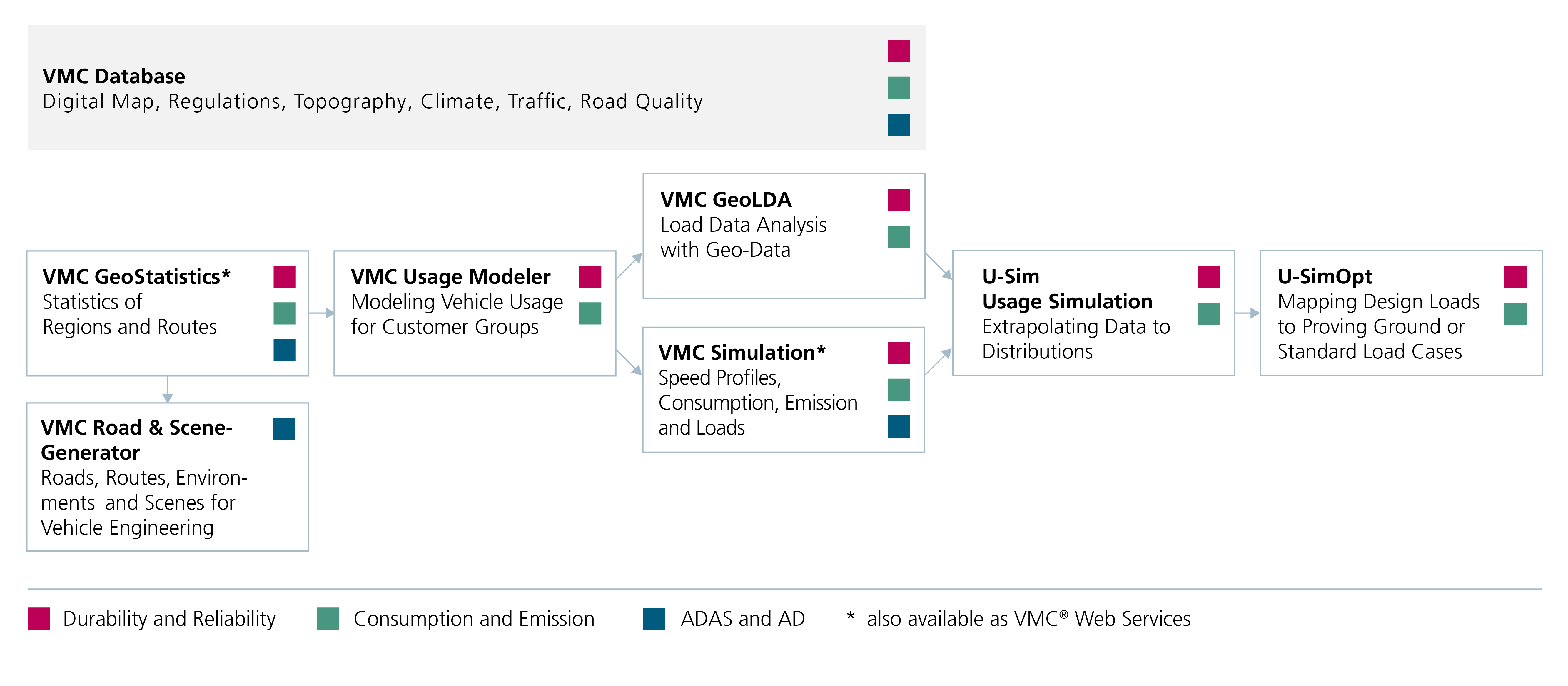Application Tested and Further Developed in Practice with Industry Partners
An implementation of the VMC® concept for application in the truck industry has been supported several years ago by a joint project with the truck manufacturers DAF-Trucks, Daimler, MAN Nutzfahrzeuge, SCANIA, and Volvo Trucks.
An early application of that technology was, among others, executed in a common project with Volkswagen Nutzfahrzeuge and reported during the VDI conference Commercial Vehicles 2015 in Eindhoven. In this case, the planning of the campaign and the derivation of usage parameters was supported by VMC® GeoStatistics, the measured data were evaluated using VMC® GeoLDA and extrapolated to load distributions using U·Sim.
Because of the rapidly growing availability of potentially relevant data (e.g., traffic) and because of upcoming new requirements with respect to specific applications (e.g., E-mobility), we are continuously developing and extending the database as well as the collection of methods. Thus, today, several fields of application already make use of VMC® GeoStatistics .
The VMC® Web Services provide a further expansion stage of the VMC® technologies as an additional important component for vehicle development. Individual combinations of individual VMC® modules enable customised automated evaluation of available data for specific usage types or special fleet customers. The VMC® Web Services are designed as a cloud-based solution, which minimises the hardware requirements for the customer to enable low-threshold access to the VMC® Web Services.

